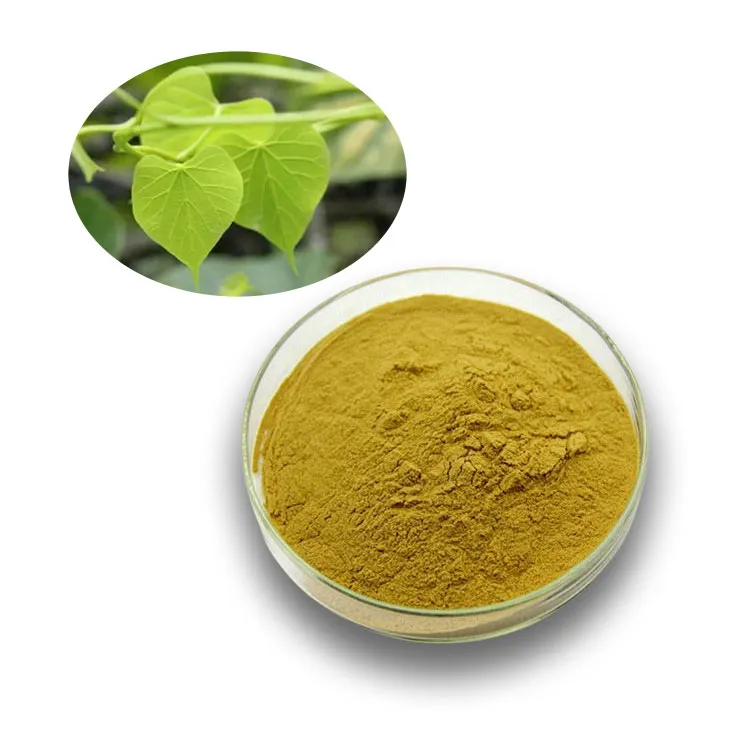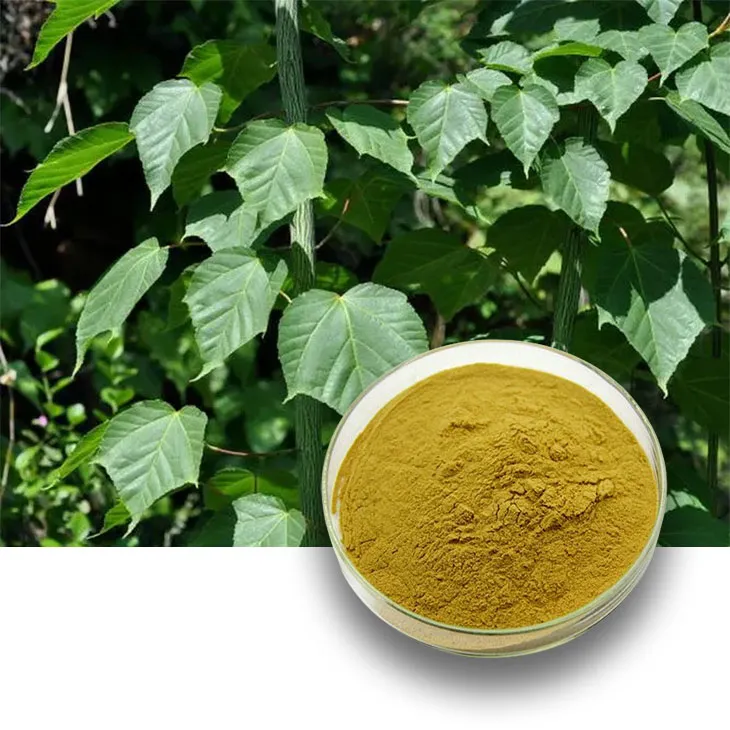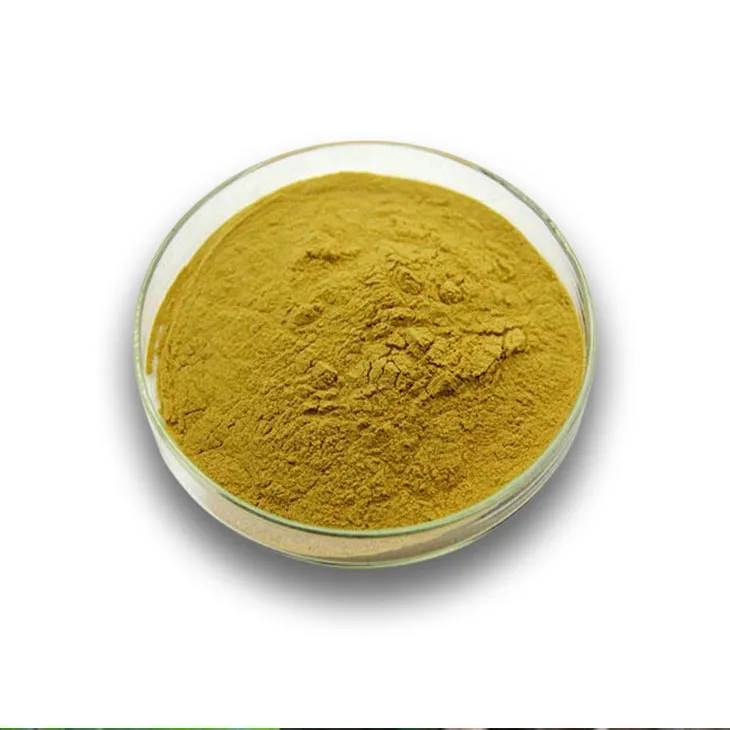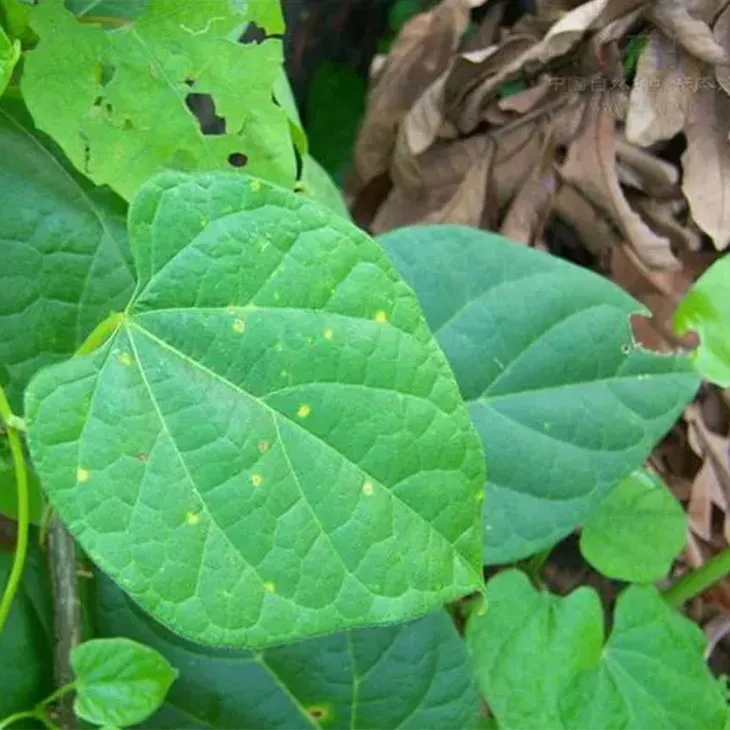- 0086-571-85302990
- sales@greenskybio.com
Application of Tinospora cordifolia extract in skin care.
2024-11-13

1. Introduction
Skin care has become an increasingly important aspect of modern life. People are constantly seeking natural and effective ingredients to maintain healthy and beautiful skin. Tinospora cordifolia extract has emerged as a potential candidate in the field of skin care. This plant extract is rich in various bioactive compounds that offer multiple benefits for the skin.

2. Anti - free radical properties
2.1 The role of free radicals in skin aging
Free radicals are unstable molecules that are constantly produced in our body due to various factors such as environmental pollution, UV radiation, and normal metabolic processes. These free radicals can cause oxidative stress in the skin cells. Oxidative stress is one of the main culprits behind premature skin aging. It can damage the skin's collagen and elastin fibers, which are crucial for maintaining the skin's firmness and elasticity. As a result, the skin may become wrinkled, dull, and lose its youthful appearance.2.2 How Tinospora cordifolia extract combats free radicals
Tinospora cordifolia extract contains antioxidants that can neutralize free radicals. Antioxidants work by donating an electron to the free radicals, thereby stabilizing them and preventing them from causing further damage. Some of the key antioxidants present in the extract may include phenolic compounds, flavonoids, and alkaloids. These compounds have the ability to scavenge free radicals throughout the skin layers, protecting the skin cells from oxidative damage. This not only helps in reducing the appearance of wrinkles but also improves the overall skin texture and tone.
3. Regulation of sebum production
3.1 Sebum production and skin types
Sebum is an oily substance produced by the sebaceous glands in the skin. The amount of sebum production varies among individuals and is one of the main factors determining skin types. People with oily skin tend to produce excessive sebum, which can lead to problems such as acne, enlarged pores, and a shiny complexion. On the other hand, those with dry skin may have insufficient sebum production, resulting in dryness, flakiness, and a lack of moisture.3.2 The mechanism of Tinospora cordifolia extract in regulating sebum
Tinospora cordifolia extract can help regulate sebum production in a balanced way. For oily skin, it may inhibit the over - activity of the sebaceous glands. This could be achieved through its interaction with the hormonal or biochemical pathways involved in sebum production. For dry skin, it may stimulate a mild increase in sebum production to provide the necessary moisture and protection. By regulating sebum production, the extract can contribute to a more balanced and healthy skin complexion, regardless of whether the skin is dry or oily.
4. Anti - inflammatory effects
4.1 Inflammation in the skin
Skin inflammation can be caused by various factors such as allergens, irritants, and microbial infections. Chronic skin inflammation can lead to skin disorders such as eczema, psoriasis, and dermatitis. Inflammatory responses in the skin are characterized by redness, swelling, itching, and pain.4.2 How Tinospora cordifolia extract reduces inflammation
Tinospora cordifolia extract has anti - inflammatory properties. It may act by suppressing the production of inflammatory mediators such as cytokines and prostaglandins. These mediators are involved in the inflammatory cascade and are responsible for the characteristic symptoms of skin inflammation. By reducing the production of these mediators, the extract can alleviate redness, swelling, and itching, and promote the healing of inflamed skin.
5. Hydration and moisture retention
5.1 Importance of skin hydration
Adequate skin hydration is essential for maintaining healthy skin. Hydrated skin looks plump, smooth, and radiant. When the skin lacks moisture, it can become dry, rough, and more prone to wrinkles.5.2 How Tinospora cordifolia extract improves skin hydration
Tinospora cordifolia extract can enhance skin hydration in multiple ways. It may help to strengthen the skin's natural barrier function, which is crucial for preventing water loss from the skin. Additionally, it may attract and retain moisture in the skin, similar to a humectant. This can keep the skin moisturized for a longer period of time, improving its overall appearance and health.6. Wound healing properties
6.1 The process of wound healing in the skin
Skin wound healing is a complex process that involves several stages, including inflammation, proliferation, and remodeling. In the inflammation stage, the body's immune system responds to the wound to prevent infection. In the proliferation stage, new cells are generated to fill the wound gap. In the remodeling stage, the newly formed tissue is reorganized to restore the normal structure and function of the skin.6.2 The role of Tinospora cordifolia extract in wound healing
Tinospora cordifolia extract can promote skin wound healing. It may enhance the inflammatory response in the initial stage to prevent infection. During the proliferation stage, it may stimulate the growth of fibroblasts, which are responsible for producing collagen and other extracellular matrix components. In the remodeling stage, it may help to improve the quality of the newly formed tissue, resulting in a more effective wound healing process.7. Incorporating Tinospora cordifolia extract into skin care products
7.1 Types of skin care products
Tinospora cordifolia extract can be incorporated into a wide range of skin care products. For example, it can be added to moisturizers, creams, serums, and masks. In moisturizers and creams, it can provide long - lasting hydration and anti - aging benefits. In serums, it can penetrate deeper into the skin to deliver its active ingredients more effectively. In masks, it can provide intensive treatment for specific skin problems.7.2 Considerations for formulation
When formulating skin care products with Tinospora cordifolia extract, several factors need to be considered. First, the concentration of the extract should be optimized to ensure its effectiveness without causing any adverse reactions. Second, the compatibility of the extract with other ingredients in the product should be evaluated. Third, the stability of the extract in the product formulation needs to be ensured to maintain its activity over time.8. Safety and potential side effects
8.1 Safety profile
Generally, Tinospora cordifolia extract is considered safe for use in skin care products. However, as with any new ingredient, it is important to conduct thorough safety tests. In vitro and in vivo studies have shown that the extract has low toxicity.8.2 Potential side effects
Although rare, some potential side effects may occur. For example, in some individuals with highly sensitive skin, the extract may cause mild irritation or allergic reactions. Therefore, it is recommended to conduct a patch test before using skin care products containing Tinospora cordifolia extract.9. Conclusion
Tinospora cordifolia extract has a wide range of potential applications in skin care. Its anti - free radical, sebum - regulating, anti - inflammatory, hydrating, wound - healing properties make it a valuable ingredient for maintaining healthy and beautiful skin. However, further research is still needed to fully understand its mechanisms of action and to optimize its use in skin care products. With continued research and development, Tinospora cordifolia extract has the potential to become a mainstream ingredient in the skin care industry.
FAQ:
Question 1: How does Tinospora cordifolia extract combat free radicals?
Tinospora cordifolia extract contains certain antioxidant compounds. These compounds have the ability to donate electrons to free radicals, neutralizing their reactivity. By doing so, it prevents the free radicals from causing oxidative damage to skin cells, which is a major factor in premature skin aging.
Question 2: Can Tinospora cordifolia extract really be suitable for both dry and oily skin?
Yes, it can. For dry skin, it may help in moisturizing and improving the skin's barrier function. For oily skin, as it can regulate sebum production, it helps to control the excessive oil secretion, thus reducing problems like acne and a shiny complexion. So it is beneficial for both skin types.
Question 3: What are the main active components in Tinospora cordifolia extract for skin care?
There are several active components. Some phenolic compounds and alkaloids are likely to play important roles. These components contribute to its antioxidant and sebum - regulating properties, but further research is still needed to fully understand all the active components and their mechanisms.
Question 4: How does Tinospora cordifolia extract contribute to a more balanced skin complexion?
By regulating sebum production, it helps to prevent excessive oiliness or dryness that can cause an uneven complexion. Also, its antioxidant properties protect the skin from damage, which can lead to a healthier and more even - toned skin appearance.
Question 5: Is Tinospora cordifolia extract safe for all skin types?
While it shows great potential for many skin types, individual skin sensitivities can vary. Some people may still have allergic reactions or sensitivities to it. It is always advisable to do a patch test before using any product containing Tinospora cordifolia extract on a larger area of the skin.
Related literature
- The Skin - Nourishing Properties of Tinospora cordifolia: A Comprehensive Review"
- "Antioxidant and Sebum - Regulating Effects of Tinospora cordifolia Extract in Skin Care"
- ▶ Hesperidin
- ▶ citrus bioflavonoids
- ▶ plant extract
- ▶ lycopene
- ▶ Diosmin
- ▶ Grape seed extract
- ▶ Sea buckthorn Juice Powder
- ▶ Beetroot powder
- ▶ Hops Extract
- ▶ Artichoke Extract
- ▶ Reishi mushroom extract
- ▶ Astaxanthin
- ▶ Green Tea Extract
- ▶ Curcumin Extract
- ▶ Horse Chestnut Extract
- ▶ Other Problems
- ▶ Boswellia Serrata Extract
- ▶ Resveratrol Extract
- ▶ Marigold Extract
- ▶ Grape Leaf Extract
- ▶ blog3
- ▶ blog4
- ▶ blog5
-
Organic Tongkat Ali extract powder factory.
2024-11-13
-
How to make powder with ashwagandha extract.
2024-11-13
-
Rosehip extract manufacturers from China.
2024-11-13
-
The best cat's claw extract in nature.
2024-11-13
-
Chinese Dandelion Leaf Extract Suppliers.
2024-11-13
-
Okra Extract
2024-11-13
-
Marigold Extract
2024-11-13
-
Citrus Aurantium Extract
2024-11-13
-
Horse Chestnut Extract
2024-11-13
-
Agaricus Blazei Extract
2024-11-13
-
Mulberry Extract
2024-11-13
-
Quercetin
2024-11-13
-
Chasteberry Extract
2024-11-13
-
Sea buckthorn oil
2024-11-13
-
Mulberry leaf Extract
2024-11-13





















